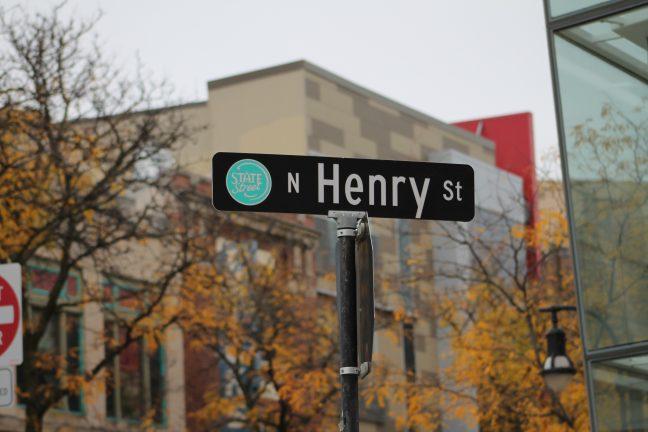Mayor Paul Soglin is looking to bring back the ’90s in the form of a transitional housing project.
In his 2017 operating budget, the Madison mayor called on the city’s Community Development Division to study the feasibility of implementing a men’s dormitory in 2018. The model would be based on a service the city started in 1995, Soglin said.
The dormitory would function as a transitional housing project for single, low-income males who are in need of temporary housing. Within the dormitory, the men would be connected to resources that will allow them to work on advancing their goals whether it be through education, work or something more personal such as substance abuse or mental health.
Soglin focuses on upward economic mobility in 2017 operating budget
Twenty years ago, Soglin talked to some of the community leaders and said they made the point that young men who dropped out of school were not receiving any attention from the community.
After looking further into the situation, Soglin said he came to the following analysis: When you are in a supportive environment, it allows for greater success in achieving your goals.
Madison mentorship program seeks to keep minority students from skipping class
“Take someone that goes to college — they are with a cohort with classmates that are college bound and have support from friends and family,” Soglin said. “When you get to college, yes that environment can have distractions, but most people there are focused on academic success.”
Pointing at dormitories, dean offices and special places for studying as examples of supportive environments, Soglin said they wanted to do an “experiment” to see what would happen if they had a house where everyone who lived there was focused on some sort of career advancement.
In addition to creating a new environment for young men, Soglin added that they wanted to have a resident advisor or counselor that would assist in connecting them to job and other educational opportunities.
Thus, the Henry Street Project was born.
With the help of Madison College, grant money and various community donors, Soglin said they were able to purchase a house on Henry Street and help pay the costs of utility and salaries for resident advisors.
State organization gives grants to fund special needs housing projects in Madison
The project had mainly targeted low-income, single men between the ages of 18 to 21, Jim O’Keefe, director at the Community Development Office, said.
In addition to furthering education and career options, the Henry Street Project also provided a variety of other support services. Participants were also able to deal with substance abuse problems or work through criminal issues.
“It was this sort of combination of a residential structure and provision of support services that really captured what this project was about,” O’Keefe said.
Faith-based program aims to heal racial disparities in Dane County
For the years the house stood on Henry Street, the program was a success as it helped participants advance in their educational goals and get part-time jobs, Soglin said.
But when Soglin left office in 1997, the program slowly became defunct in a few years for financial reasons, he said.
Now, as the city works to reduce racial disparities, Soglin said this proposed men’s dormitory would look toward supporting the education, training and upward mobility of young men of color. In the Race to Equity report, data revealed that black males in Dane County are five times less likely to be employed as opposed to white males in Dane County.
“The main thing that struck me this past year is we’ve been marching forward in providing more permanent housing, but we’re still missing young adults,” Soglin said. “This [type of project] might be the way to provide direct services of value to them.”
Community leaders, residents present plan to reduce racial disparities, violence in Madison
At the moment, there have been no funds allocated toward the project. Instead, the 2017 operating budget request simply asks the Community Development Division to look at the feasibility of the project because Soglin said he is interested in seeing if something like it would work again.
With the research they have come with already, O’Keefe said his department is looking at two main gaps: How this program would be funded and exactly what type of services will be needed.
At the moment, O’Keefe said the renewed project would continue focusing on issues around completing educational goals and providing direct employment training. In addition, he said they would like to look into providing services that would help those struggling with substance abuse or mental health issues.
A safe place: Legislation pushes sober housing development in Wisconsin
Overall, O’Keefe said they’re looking at what factors might be preventing young men or young people from being successful.
While they keep the original project in mind, O’Keefe said it’s important to make sense of what they want to replicate and what didn’t work.
“It’s certainly possible we might find that a project that made sense and worked 25 years ago doesn’t make so much sense [today],” O’Keefe said. “Things have changed — they’re different. There are different providers and different service agencies now.”
The request won’t become official until the budget is adopted and is finalized on Jan. 1. Until then, the possibility of a men’s dormitory remains uncertain.












